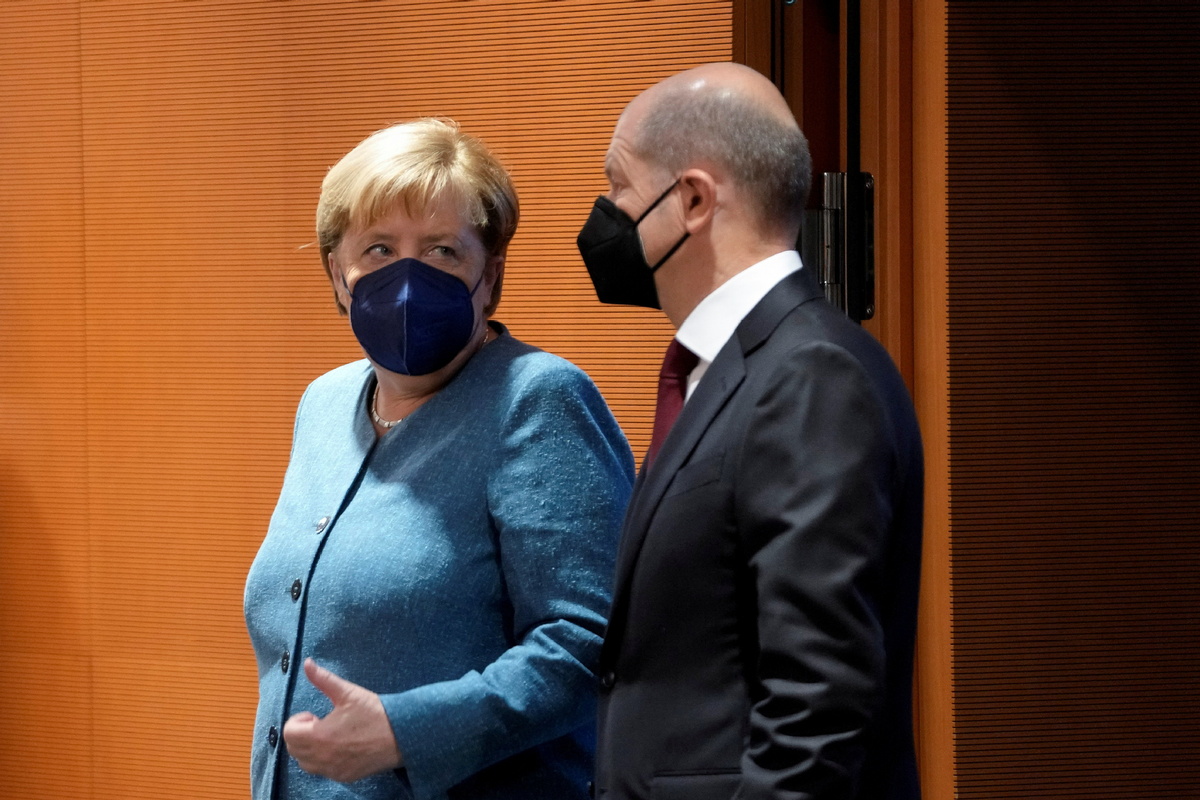Germany coalition talks could last many months
By EARLE GALE in London | China Daily Global | Updated: 2021-09-29 09:35

Angela Merkel will stay on as chancellor while parties vie for control of Bundestag
Germany looks set to be governed by a coalition led by the left-of-center Social Democratic Party after Sunday's federal election, but the change at the top could take months to bring about as smaller parties negotiate the terms of their support.
The swing to the left is by no means guaranteed, the BBC says, with the ruling Christian Democratic Union, which attracted marginally fewer votes than the Social Democrats, still hoping to form an unlikely ruling coalition of its own.
Both the Olaf Scholz-led Social Democratic Party, which is known as the SPD, and the Armin Laschet-led Christian Democratic Union, which is known as the CDU, will now focus on wooing smaller parties, with the Greens and the Free Democratic Party likely to hold the balance of power.
The Associated Press quoted SPD parliamentary group leader Rolf Muetzenich as saying: "The Greens and Free Democrats have been invited by us to hold exploratory talks with us this week already if they want."
But some CDU lawmakers were less bullish and had already given up on the idea of extending their term in office beyond its current 16 years.
AP quoted Volker Bouffier, the CDU governor of the state of Hesse, as saying: "We have no entitlement to take government responsibility."
Deutsche Welle, Germany's state broadcaster, which said the result was the CDU's worst showing since the party was founded in 1945, quoted Bouffier as saying: "We should humbly and respectfully accept the will of the voters, with modesty and composure."
AP added that the leader of the CDU's youth wing, Tilman Kuban, said: "We have no mandate to govern. We lost the election; period."
In the meantime, while coalition talks continue, Chancellor Angela Merkel, who had said ahead of Sunday's vote that she was looking forward to stepping down, will have to stay on as caretaker leader. Some pundits have said she could still be in office at the end of the year, which would take her past Helmut Kohl's record as the nation's longest-serving leader.
Germany's newly elected lawmakers gathered for their first meetings on Tuesday to discuss the election and the prospects of various coalitions.
The Financial Times newspaper said Germany's "political compass "had "splintered", with the diminishing size of the collective centrist vote apparent.
The paper said the Greens are likely to be involved in any coalition that emerges, and will want to remove the country's "debt brake" to increase spending. The FT said that will surely have an impact on the economy of the European Union.
ITV News quoted Christian Lindner, the leader of the Free Democrats, as saying the fact that no clear winner emerged from Sunday's vote means parties will be forced to compromise.
"All of those in Europe and beyond who were worried about Germany's stability can now see: Germany will be stable in any case," he said.
The SPD, which landed 25.9 percent of the vote, traditionally favors working with the Greens, which finished third with 14.8 percent. The CDU, which took 24.1 percent of the vote, usually favors working with the pro-business Free Democrats, which took 11.5 percent of the vote. However, all parties have said they are open to talking to each of the others.
























